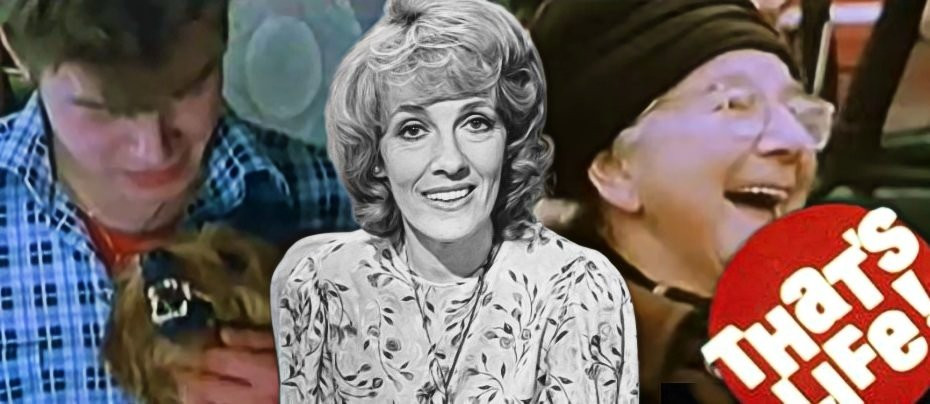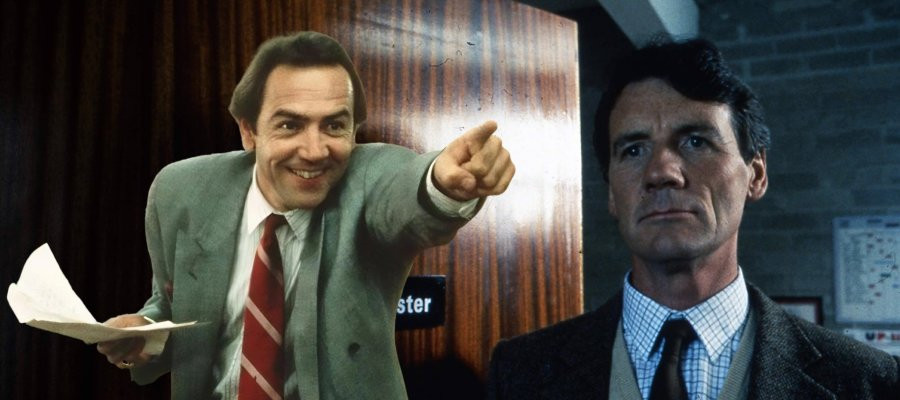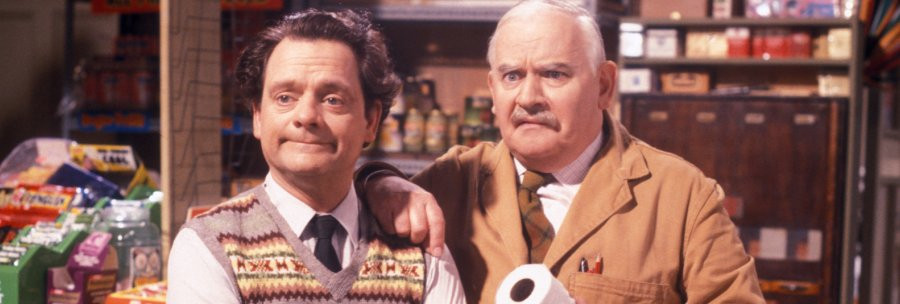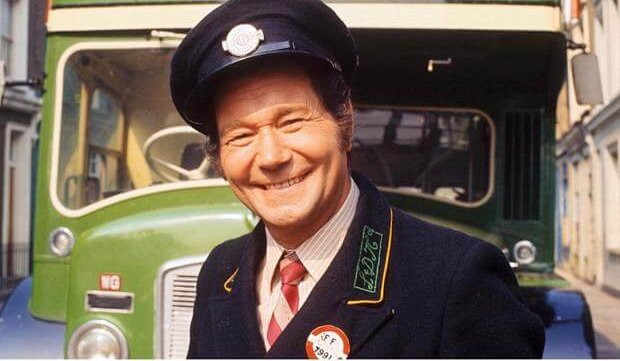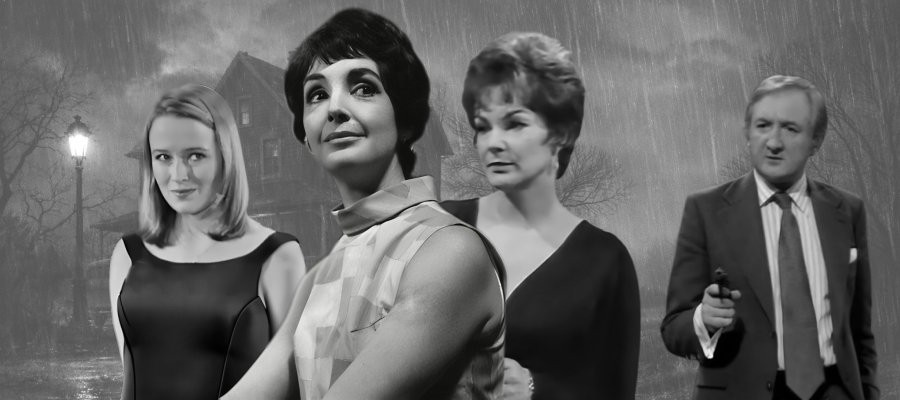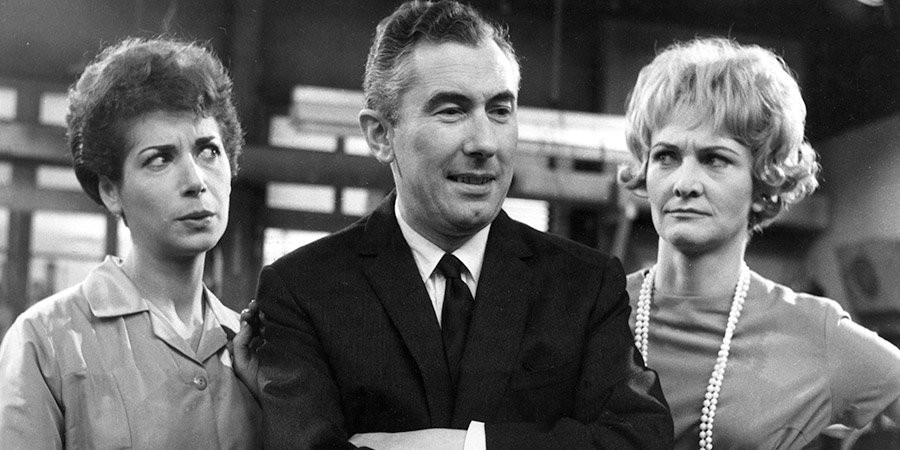
dinnerladies
1998 - United KingdomBy 1998 Victoria Wood was already a National Treasure thanks to her successful works in the world of comedy. Having written and performed in sketches, stand-up, plays and films, she'd conquered all comedy formats but had never done a television sitcom. dinnerladies would prove to be her only one, but also the crowning achievement in her glittering career.
Working-class sitcoms come few and far between, and dinnerladies is one of the more relatable and bittersweet of them all. Centring on the lives of the staff members at a Manchester factory canteen and their interactions fuelled by their quirks and idiosyncrasies. The down-to-earth characters and humdrum settings are not surprising as Wood's work derives from her observations of everyday people and mundane situations that always raise a mighty guffaw.
As well as writing the series, Wood also stars as Bren, a hard-working woman who's had plenty to contend with in her life so far. Her co-workers include Dolly and Jean the two bickering older ladies; the ditsy but loveable Anita and Twinkle who's morose but loyal. The team is led by wry-humoured Tony who has to listen to their constant moans about everyday struggles and women's problems. Two other staff members who cross paths with the team include handyman Stan and Phillipa, a prim and proper female HR worker who torments the staff, but generally means well. But the most memorable character of all is Bren's ghastly hag of a mother Petula; played to perfection by Wood's regular collaborator Julie Walters, she tells head-in-the-sky stories of affairs with pop stars and travels to obscure places that annoy, baffle and are disbelieved by virtually everyone.
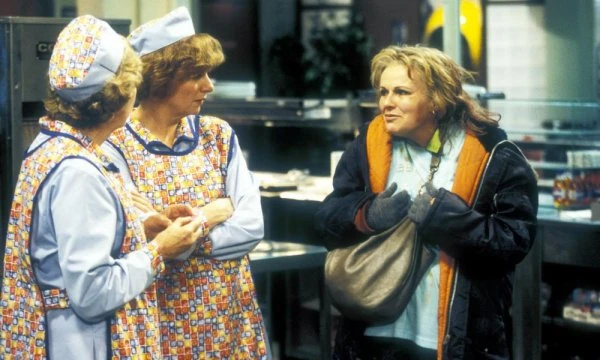
The series is a shining example of what makes a good sitcom; first-rate writing and a superb cast who can stand on their own individual talents while equally jelling as an ensemble. There isn't a weak link as Wood brought together performers from her consistently reliable repertory including Celia Imrie, Duncan Preston, Anne Reid along with newcomers Thelma Barlow, Maxine Peake, Andrew Dunn and Shobna Gulati. Viewers could easily recognise these characters and much applause should go to Wood and the cast for portraying working-class people in an affectionate and accurate light.
Approaching the sitcom much like a soap opera, Wood gave each character story-arcs, and each episode enough subplots to cook a canteen dinner. Along with the comedy, Wood also included her style of heartbreaking pathos, with storylines such as Tony's cancer battle, and themes that explore the trials of real life that bring a sense of identifiable truth.
Many interviews with the cast and crew shine a light on the stress Wood put herself through by rewriting late at night and at lunch breaks during rehearsals to ensure the quality of the scripts was high. The production also ensured the high standards by opting to film each episode twice a week; once on a Friday, change what didn't work and film again on the Sunday.
This stress inevitably paid off; in 16 episodes the series rarely dips below brilliant and Wood was clever enough to finish it before viewers grew tired. Ending after two series with the canteen closing down, each character is given their own happy ending, making it one of the more satisfying sitcom finales. Thanks to its brilliance and compact episodes, dinnerladies is a sitcom that can be viewed multiple times as viewers can continue to laugh at the same moments, while also taking something different from it each time. Apart from being a sitcom with female leads, there's nothing especially groundbreaking about dinnerladies. It's simply a brilliant sitcom that truly deserves a place as an all-time classic, up there with Porridge, Open All Hours and Are You Being Served?
Although it certainly has its fans and is regularly repeated, perhaps what stopped it from gaining such notoriety is down to timing; it aired around at the same time as The Royle Family, a series that adopted a new style of no studio audience, naturalistic performances and an overall less boisterous approach that made dinnerladies seem stuck in the sitcom past. While it achieved high viewing figures and won prestigious awards, had it aired a few years earlier, perhaps it would have achieved the national treasure recognition it deserves as opposed to its current cult status. And indeed, while sharper than The Royle Family, the conversations within dinneradies are about such mundane topics and wouldn't seem out of place in an episode of its sitcom peer.
Although the only sitcom Victoria Wood would ever write, dinnerladies is by far her best work, encompassing all her brilliant trademarks in a two-series sitcom that is nothing short of wonderful. Nearly two decades since it first aired, it has aged miraculously well and with recent renewed interest since Wood's death, hopefully, it will finally be acknowledged as the sitcom classic it really is.
Seen this show? How do you rate it?
Seen this show? How do you rate it?
Published on December 7th, 2018. Review: John Collins (2016).




